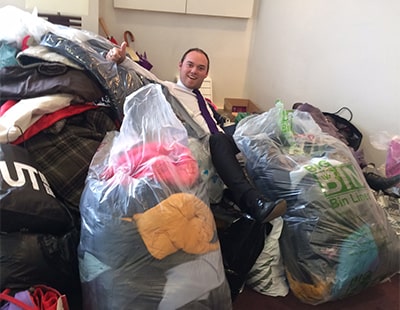When the weather turns like it has, we use more energy to keep our homes cosy. However, this places increasing strain on the nation's electricity supplies, especially during a time of global volatility.
Although the government has ruled out the possibility of power cuts as a response to the energy crisis, the National Grid has suggested that planned outages could occur if low fuel supplies and poor weather conditions combine to create a worst-case scenario. It's better to be over-prepared than caught off guard, so we asked Nigel Glen, Executive Chair of the Property Institute, for his tips.
1. Consider your building and its systems
Start by assessing your building's systems. How could your property be affected by a loss of electricity? Could there be damage to its water supply, heating or alarms? Are there gates or doors that require electricity to operate, and do these pose a security risk? How about lifts and CCTV? You should warn any tenants that could be affected by the loss of these.
"Look into hiring more security for entrances and patrolling," Nigel said. "Remember, it could get very dark, so equip them with torches and walkie-talkies."
2. Look for alternative power sources
According to Nigel, the National Grid says that power cuts should not last longer than 3 hours. This means that an Uninterrupted Power Supply (UPS), commonly used to power emergency lights, should be able to tide tenants over until power returns. Solar panels with battery storage could be another option while also being better for the environment and helping tenants reduce their energy bills.
3. Inform insurers about what you find
Nigel also advised that property managers should consult insurers before planned power cuts are confirmed. "After assessing your building's safety systems, report your findings to your insurers. For example, many smoke alarms are tripped by power outages–if yours are, that's something your insurer should know about your building."
4. Keep everyone updated
Make sure your tenants are informed about when an outage is happening and what they can expect. Contact them via email, text or letter, depending on their communication preferences. You could even provide some tips about how to prepare.
Be ready for emails, phone calls and other communications from tenants reminds Nigel. Many people will have pre-charged mobile phones, so they may still contact you in the event of a query or emergency.
5. Know what needs resetting once the power is back on
There are all sorts of items that may need resetting in a building after a loss of power: CCTV systems, gates, boilers, fire alarms etc. The best way to keep track, says Nigel, is to make a list of things to check after the power cut. Your tenants will have their own appliances, too; ovens and electronics will need resetting.
6. Tell your tenants when the power returns
Send an email or text to your tenants to let them know the power is back on. Many will know immediately, but those who aren't aware, or are away from home, will appreciate being informed.
What these tips from Nigel emphasise is the importance of planning ahead. Even if the worst does not come to bear, it’s always good to stay organised and prepared. And this applies to all aspects of property management, too. It’s always good to know your properties and have a list of what to check so you can stay up to date with maintenance, compliance and tenant needs.
*James Dilgul is the Head of Marketing at Fixflo, the market-leading repairs and maintenance management software provider
























Join the conversation
Be the first to comment (please use the comment box below)
Please login to comment